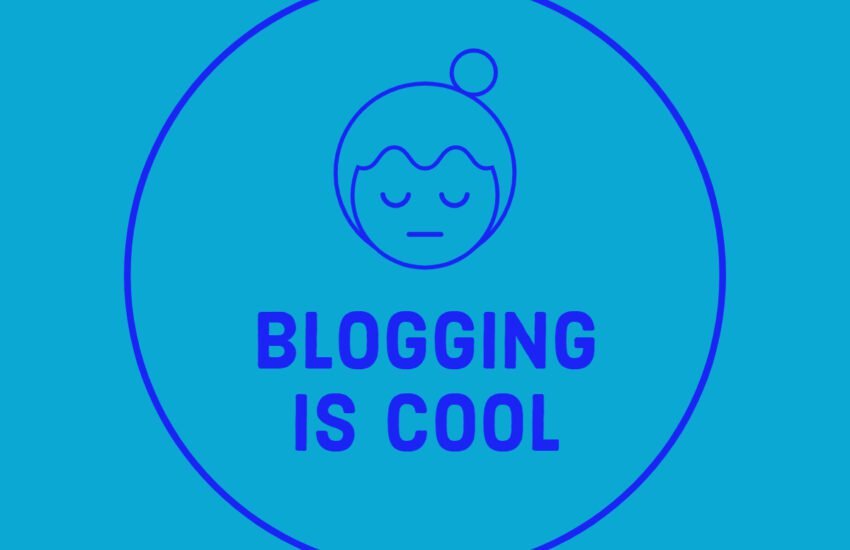How to disclose that you are making money from your blog posts
In today’s digital age, sponsored content has become a prevalent form of advertising across various online platforms. And it is essential to disclose to the public that you are making money from the blog posts.
As a content creator or influencer, it’s crucial to maintain transparency and honesty with your audience when sharing sponsored content.
One way to achieve this is through proper disclosure. In this guide, we’ll delve into what sponsored content disclosure is, why it’s important, and how to do it effectively in simple terms for beginners.
- Understanding Sponsored Content
- Importance of Disclosure
- Legal Requirements
- Types of Disclosures
- Best Practices for Disclosure
- Conclusion
- Frequently Asked Questions
- 1. What is sponsored content disclosure, and why is it important?
- 2. What are the legal requirements for disclosing sponsored content?
- 3. What are the different types of disclosures for sponsored content?
- 4. How should influencers disclose sponsored content on social media platforms?
- 5. How can influencers ensure their sponsored content disclosures are clear and effective?
- 6. What are the consequences of not disclosing sponsored content properly?
- 7. How can influencers maintain transparency when promoting affiliate products or services?
- 8. How can influencers navigate sponsored content disclosure for long-term brand partnerships?
- 9. What are some common misconceptions about sponsored content disclosure?
- 10. How can influencers educate their audience about the importance of sponsored content disclosure?
Understanding Sponsored Content
Sponsored content refers to any material that a company has paid for or provided in exchange for promotion. It can come in various forms, including social media posts, blog articles, videos, and more.
The purpose of sponsored content is typically to promote a product, service, or brand to the creator’s audience.
Importance of Disclosure
Disclosing sponsored content is essential for maintaining trust and transparency with your audience.
When you disclose that a post or video is sponsored, you’re being upfront about the fact that you have a relationship with the brand or company being promoted.
This transparency helps your audience make informed decisions and fosters trust in your recommendations.
Legal Requirements
In many countries, there are legal requirements regarding the disclosure of sponsored content.
These laws aim to protect consumers from deceptive advertising practices. For example, in the United States, the Federal Trade Commission (FTC) requires influencers and content creators to clearly disclose their relationships with brands when promoting products or services.
Types of Disclosures
There are various ways to disclose sponsored content, and the method you choose should be clear and conspicuous to your audience. Here are some common types of disclosures:
1. #Ad or #Sponsored
Using hashtags like #ad or #sponsored at the beginning of your post or caption on social media platforms like Instagram and Twitter is a simple and effective way to disclose sponsored content.
2. Paid Partnership
On platforms like Instagram and Facebook, you can use the “Paid Partnership” tag to indicate that your post is sponsored. This tag appears below your username, making it easy for your audience to see.
3. Disclosure in Video Content
If you’re creating sponsored video content for platforms like YouTube, include a verbal disclosure at the beginning of the video and/or visibly display a disclosure message on the screen throughout the video.
4. Written Disclosure in Blog Posts
For sponsored blog posts or articles, include a clear disclosure at the beginning of the post, informing readers that the content is sponsored.
5. Affiliate Links: If you’re including affiliate links in your content, disclose that you may earn a commission from purchases made through those links.
Best Practices for Disclosure
To ensure your disclosure is effective, consider the following best practices:
1. Be Clear and Conspicuous
Your disclosure should be easy for your audience to notice and understand. Avoid burying it in a long list of hashtags or in small, hard-to-read text.
2. Use Plain Language
Keep your disclosure simple and straightforward, using language that your audience can easily understand.
3. Place Disclosure Early
Disclose the sponsored nature of your content at the beginning of your post or video to ensure it’s seen by your audience right away.
4. Tailor Disclosure to Platform
Different social media platforms may have specific requirements or features for disclosing sponsored content. Familiarize yourself with these guidelines and use the appropriate methods for each platform.
5. Be Honest
Above all, be honest and transparent with your audience. Only promote products or services that you genuinely believe in, and disclose any relationships or compensation received for sponsored content.
Conclusion
Properly disclosing sponsored content is not only a legal requirement in many jurisdictions but also an ethical responsibility as a content creator or influencer. By being transparent about your partnerships and affiliations, you can maintain trust with your audience and build a reputation as a credible and authentic creator. Follow the tips and best practices outlined in this guide to ensure your sponsored content disclosures are clear, honest, and effective.
Frequently Asked Questions
1. What is sponsored content disclosure, and why is it important?
Sponsored content disclosure involves transparently informing your audience when a piece of content has been paid for or provided in exchange for promotion.
It’s crucial because it maintains honesty and trust with your audience, ensuring they understand the nature of the content and any potential biases.
When you disclose sponsored content, you’re essentially providing full transparency about your relationship with the brand or company being promoted.
This transparency helps your audience make informed decisions about the content they consume and the products or services they consider purchasing. Without proper disclosure, there’s a risk of misleading your audience and eroding their trust in your recommendations.
By being upfront about sponsored content, you demonstrate integrity as a content creator or influencer, which can enhance your credibility and long-term relationships with your audience and brand partners.
Additionally, complying with legal requirements for disclosure helps you avoid potential fines or penalties for deceptive advertising practices, ensuring you operate ethically and responsibly in the digital space.
2. What are the legal requirements for disclosing sponsored content?
In many countries, including the United States, legal requirements for disclosing sponsored content are enforced by regulatory bodies such as the Federal Trade Commission (FTC).
These requirements aim to protect consumers from deceptive advertising practices and ensure transparency in influencer marketing.
According to the FTC guidelines, influencers and content creators must clearly disclose their relationships with brands when promoting products or services.
The disclosure should be easily noticeable and understandable to the average consumer, regardless of the platform or medium used. Failure to comply with these guidelines can result in warnings, fines, or legal action against both the influencer and the brand involved.
The FTC recommends using clear language such as “Ad,” “Sponsored,” or “Paid partnership” to disclose sponsored content. Additionally, disclosures should be placed at the beginning of a post or video where they’re likely to be seen by viewers.
It’s essential to familiarize yourself with the specific disclosure requirements in your country or region and adhere to them diligently to avoid potential legal consequences.
3. What are the different types of disclosures for sponsored content?
There are several common types of disclosures that content creators and influencers can use to indicate sponsored content:
1. Hashtags
Using hashtags like #ad or #sponsored at the beginning of social media posts on platforms such as Instagram and Twitter.
2. Paid Partnership Tag
Utilizing platform-specific features like the “Paid Partnership” tag on Instagram and Facebook to indicate sponsored content.
3. Verbal Disclosure
Including a verbal disclosure at the beginning of sponsored video content on platforms like YouTube.
4. On-screen Disclosure
Visibly displaying a disclosure message on the screen throughout sponsored video content.
5. Written Disclosure
Including a clear disclosure at the beginning of sponsored blog posts or articles.
6. Affiliate Links Disclosure
Informing the audience that affiliate links may be used, and the creator may earn a commission from purchases made through those links.
Each type of disclosure serves the same purpose: to inform the audience that the content they’re consuming is sponsored in some way. The choice of disclosure method depends on the platform, content format, and personal preference of the content creator.
4. How should influencers disclose sponsored content on social media platforms?
Disclosure of sponsored content on social media platforms is essential to maintain transparency and comply with legal requirements. Here’s how influencers can effectively disclose sponsored content on various social media platforms:
– Use the “Paid Partnership” tag when creating a post in partnership with a brand.
– Incorporate #ad or #sponsored at the beginning of the caption to indicate sponsored content.
– Ensure the disclosure is visible without the need for users to click “more” to view the entire caption.
YouTube
– Provide a verbal disclosure at the beginning of the video, clearly stating that it is sponsored.
– Include a written disclosure in the video description, preferably near the beginning, to ensure viewers are informed.
– Use #ad or #sponsored at the beginning of the tweet to disclose sponsored content.
– Ensure the disclosure is prominently placed within the tweet to catch users’ attention.
– Utilize the “Paid Partnership” tag when creating sponsored posts in collaboration with brands.
– Incorporate #ad or #sponsored at the beginning of the post to disclose the sponsorship.
Regardless of the platform, influencers should ensure that disclosures are clear, conspicuous, and easily understood by their audience. Failing to disclose sponsored content adequately may lead to a loss of trust and potential legal repercussions.
5. How can influencers ensure their sponsored content disclosures are clear and effective?
To ensure sponsored content disclosures are clear and effective, influencers should follow these best practices:
1. Use Clear Language
Use terms like “Ad,” “Sponsored,” or “Paid partnership” to clearly indicate that the content is sponsored.
2. Make Disclosures Prominent
Ensure disclosures are placed prominently at the beginning of the content, where they’re easily visible to viewers.
3. Avoid Ambiguity
Avoid vague or ambiguous language that could confuse the audience about the nature of the sponsorship.
4. Use Legible Fonts and Colors
Ensure that disclosures are presented in legible fonts and colors that stand out against the background.
5. Tailor Disclosures to Platform
Familiarize yourself with the disclosure options available on different social media platforms and use them appropriately.
6. Be Consistent
Maintain consistency in how you disclose sponsored content across all your platforms and content formats.
7. Educate Your Audience
Take the time to explain to your audience why disclosure is important and how it benefits them.
By adhering to these best practices, influencers can ensure that their sponsored content disclosures are clear, transparent, and compliant with legal requirements.
6. What are the consequences of not disclosing sponsored content properly?
Failure to disclose sponsored content properly can have several consequences for influencers and content creators:
1. Loss of Trust
Failing to disclose sponsored content can erode the trust of your audience, leading them to question the authenticity of your recommendations.
2. Legal Repercussions
Non-compliance with disclosure regulations, such as those set forth by the FTC, can result in warnings, fines, or legal action against both the influencer and the brand involved.
3. Damage to Reputation
Public backlash and negative publicity can damage the reputation of influencers and brands associated with undisclosed sponsored content.
4. Platform Penalties
Social media platforms may penalize users who violate their disclosure policies by reducing visibility, suspending accounts, or removing content.
5. Loss of Brand Partnerships
Brands may hesitate to collaborate with influencers who have a history of inadequate disclosure, leading to a loss of lucrative partnerships and opportunities.
Overall, the consequences of not disclosing sponsored content properly can be severe and far-reaching, impacting both the influencer’s career and their relationship with their audience.
7. How can influencers maintain transparency when promoting affiliate products or services?
When promoting affiliate products or services, influencers should prioritize transparency and honesty to maintain trust with their audience. Here’s how influencers can maintain transparency when promoting affiliate products:
1. Disclose Affiliate Relationships
Clearly disclose your affiliate relationships to your audience, informing them that you may earn a commission from purchases made through affiliate links.
2. Prioritize Relevance and Authenticity
Only promote affiliate products or services that align with your brand and that you genuinely believe will benefit your audience.
3. Provide Value
Focus on providing valuable content to your audience, rather than solely promoting affiliate products. Educate your audience about the benefits and features of the products or services you’re promoting.
4. Offer Full Disclosure
Be transparent about the potential benefits you receive from promoting affiliate products, including any monetary compensation or incentives.
5. Avoid Overpromotion
Avoid overpromoting affiliate products or bombarding your audience with excessive affiliate links, as this can come across as insincere and reduce trust.
By prioritizing transparency, relevance, and authenticity in their affiliate promotions, influencers can maintain trust with their audience and build long-term relationships based on mutual respect and value.
8. How can influencers navigate sponsored content disclosure for long-term brand partnerships?
When entering into long-term brand partnerships, influencers should establish clear guidelines and expectations regarding sponsored content disclosure from the outset. Here are some strategies for navigating sponsored content disclosure in long-term brand partnerships:
1. Establish Clear Communication
Communicate openly with brand partners about your disclosure practices and ensure they understand the importance of transparency to maintain trust with your audience.
2. Develop Consistent Guidelines
Develop a set of consistent guidelines for disclosing sponsored content across all platforms and content formats. This helps maintain transparency and consistency in your sponsored content.
3. Educate Brand Partners
Educate brand partners about the legal requirements and best practices for sponsored content disclosure to ensure they comply with regulations and industry standards.
4. Prioritize Audience Trust
Prioritize the trust and satisfaction of your audience above all else. Ensure that sponsored content aligns with your audience’s interests and needs and disclose any sponsorships transparently.
5. Monitor Performance
Regularly monitor the performance of sponsored content to ensure it resonates with your audience and delivers value to both your audience and brand partners.
By establishing clear communication, consistent guidelines, and a commitment to prioritizing audience trust, influencers can navigate sponsored content disclosure effectively in long-term brand partnerships.
9. What are some common misconceptions about sponsored content disclosure?
There are several common misconceptions about sponsored content disclosure that influencers should be aware of:
1. Misconception: Disclosure is Optional
– Reality: Disclosure of sponsored content is a legal requirement in many countries, and failure to disclose properly can result in fines or legal consequences.
2. Misconception: Disclosure Can Be Hidden
– Reality: Disclosures must be clear and conspicuous, easily noticeable and understandable to the average consumer, regardless of the platform or medium used.
3. Misconception: Disclosure Isn’t Necessary for Small Influencers
– Reality: Disclosure requirements apply to influencers of all sizes, regardless of their follower count or reach. All sponsored content must be disclosed properly, regardless of the influencer’s popularity.
4. Misconception: Using Ambiguous Terms is Sufficient
– Reality: Using vague or ambiguous terms like “Thanks to [Brand]” or “Partnered with [Brand]” may not adequately convey the sponsored nature of the content and may not comply with disclosure regulations.
5. Misconception: Only Monetary Compensation Requires Disclosure
– Reality: Disclosure is required whenever there is a material connection between the influencer and the brand, including monetary compensation, free products, discounts, or any other form of compensation.
By dispelling these common misconceptions and adhering to best practices for sponsored content disclosure, influencers can maintain transparency and compliance with legal requirements.
10. How can influencers educate their audience about the importance of sponsored content disclosure?
Educating your audience about the importance of sponsored content disclosure is essential for fostering transparency and trust. Here are some strategies for influencers to educate their audience about sponsored content disclosure:
1. Explain the Purpose
Clearly explain to your audience why sponsored content disclosure is necessary and how it benefits them by providing transparency and authenticity.
2. Provide Examples
Use real-life examples to illustrate the importance of sponsored content disclosure and how it can impact the trust between influencers and their audience.
3. Address Common Misconceptions
Address any misconceptions or misunderstandings your audience may have about sponsored content disclosure and provide clarification.
4. Engage in Dialogue
Encourage open dialogue with your audience about sponsored content disclosure, inviting questions and feedback to foster understanding and trust.
5. Lead by Example
Demonstrate your commitment to transparency by consistently disclosing sponsored content in a clear and conspicuous manner across all your platforms and content formats.
By actively engaging with your audience and providing clear explanations and examples, influencers can help educate their audience about the importance of sponsored content disclosure and foster a culture of transparency and trust within their community.


